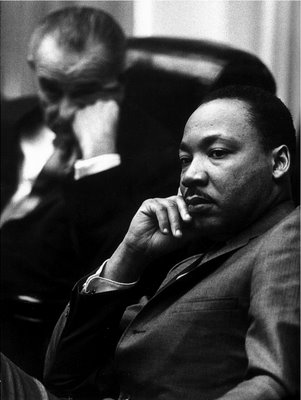EDWARDS '08

I've just made my first contribution to the 2008 presidential race. And I made it to the John Edwards campaign. He is a candidate I can enthuse about, a man with no early discernible political aspirations -- rather, he is convincingly driven by a desire to impact society for good, to achieve progress towards social justice, to improve the lives of ordinary Americans. And I am convinced that he has the character, charisma cum gravitas to persuade the electorate that he is the right man at the right time to lead the nation.
E.J. Dionne points out today that Edwards' balanced priorities stand in stark contrast to those of George W. Bush, and EJ challenges Obama and Clinton to articulate specifics of their own. Let me say that I am an admirer of both the latter politicians.
But I believe Obama's attraction is due to charisma and an inspiring, uplifting attitude and history. Edwards has that, too, a sunny disposition and an all-American appealing story of a small-town Southern millworker's son who was the first in his family to graduate from college.
In Clinton's case, she is a keen intellect, a ferocious organizer, consensus builder, and proven vote-getter. Edwards is also. He is regarded as one of the best trial lawyers in America for his meticulous research and preparation, empathy with his client and persuasive abilities with a jury. In his first electoral foray he defeated an entrenched Republican Senator and after only two years as a U.S. Senator, was on the short list to be Al Gore's running mate. His success in the Democratic primary elections in the subsequent race four years later made him an obvious, and compelling, running mate for John Kerry in '04.
Edwards, though, has the best qualities of both Obama and Clinton and has also articulated a clear agenda for an Edwards presidency: fighting poverty, containing health care costs and advancing coverage for all Americans, and transforming the energy economy of the U.S. Edwards and showed political courage by being one of the earliest to recant his vote for the war in Iraq and criticize both the Bush execution of the war and the "way we got there."
John Edwards was fully vetted by the press and the public in the 2004 presidential race when he ran as John Kerry's running mate for the office of Vice President. It is unlikely that there are skeletons in his closet that can be exploited against him by venal Republican operatives. His only political vulnerability to date has been his career as a trial lawyer. But since that career was demonstrably one of championing just causes of
Courtesy of the John Edwards for President blog, I found this interesting and revealing story about Edwards' life up till the 2003 presidential primaries.
Yes, it is early times yet to be declaring for a presidential candidate. In my case, it will obviously be a Democratic candidate. This race is going to be long because it is so important. Most Americans will not tune in until near the finish line. In the race for the 2004 election, I early declared for Howard Dean. I now, as so often, see that the best result in that case was what has actually happened -- Howard is making a superb chairman of the Democratic Party. I don't think he would have fared as well against W as did John Kerry.
There are a year and a half until the Democratic nominee for the '08 race will be known. We will have a pretty good idea, though, for some time before that, who it will be. I recognize that the dynamics of political races often bring surprises, but John Edwards, I am persuaded, is a man after the hearts of most Americans. He is Clintonesque, but without the baggage. He is a progressive, but one with a solid centrist appeal. He has a way of projecting optimism even when focusing on the most negative aspects of our national issues. He has a boyish appeal, but he is a mature man who has faced some of life's most difficult challenges with grace and good will. His family, his values, his goals, should speak to the hearts of ordinary Americans in a way that has not been done for a very long time, if ever.
And parenthetically (or not so much), as a woman I am always very interested in a man's (or woman's) family. It says so much to me about the person. Elizabeth Edwards is a woman I so very much admire, as who could not? To secure, and maintain, her love and devotion speaks volumes about her husband. And while one must allow that children can go through so much before they establish their final and lasting characters, John and Elizabeth's are a tribute to their own.
This is a man to be trusted with our future.
Tags: John Edwards





